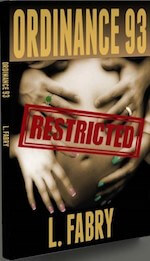Top 6 Most Shocking Reveals in the Gosnell Book (final)
We’ve previously written about the Top 7 Most Shocking Reveals in the Gosnell Book (part 2) and the Top 6 Most Shocking Reveals in the Gosnell Book. But those previous entries were by no means the only shockers to be found. Read on to see our next and final installment of the Top 6 Most Shocking Reveals in the Gosnell Book. WARNING: EXPLICIT LANGUAGE AND CONTENT FOLLOWS.
1. They were wildly overestimating the media interest (pg 181)
Serial killers usually mean lots of coverage and what some judges refer to as a circus. For Gosnell’s trial, one of the largest courtrooms in Philadelphia was reserved. Unfortunately, few reporters decided the case was worth covering. The few who did show included local coverage (who would probably cover any local murder) and some tabloid reporters (who will cover anything outrageously out of the ordinary). Only until “the press was shamed into covering the trial” (pg 181) were the proceedings given their due.
2. Many of the women regretted the abortions (pg 185)
Gosnell’s patients tended to be poor and minority women who were fine with late term abortions at the time of the procedure. The book even states that “some appeared to use his clinic as a form of after-the-fact contraception” (185). But not all were happy with the outcome. The DA recalls interviewing women who were brought in by parents in their teens who cried about “who they are now” (pg 185). Many of them ended up becoming faithful Christian women as a result.
3. (Gosnell) needed to be consulted on everything that happened to the white women (pg 194)

4. The doctor used it over and over again on an untold number of patients (pg 217)
One of the doctor’s main downfalls was his tendency to penny pinch, even if it was against health codes. One of the most egregious examples was the use and subsequent reuse of an instrument called a curette. This is a tool used to used to scrape fetal tissue out of a woman’s uterus. One of the prosecutors actually donned a protective glove and showed the reused instrument to the jury. A curette typically costs anywhere from $1.00 to $1.25.
5. (The attorney for Gosnell) is now the proud owner of a luxury vacation home, courtesy of America’s biggest serial killer (pg 237)
Gosnell had essentially created an “assembly line” (pg 236) of women who went it, paid in cash, and went out – follow up services optional. One of the clinic’s staff testified it was why Gosnell had $250,000 hidden in his daughter’s bedroom and a shore home. Gosnell gave it to his high-profile defense attorney in exchange for representation. The prosecutor made sure to mention this during closing arguments.
6. He continually touched my leg (pg 292)
Ann McElhinney and Phelim McAleer weren’t about to write this book without meeting the man himself. They did so for two hours at the state Correctional Institute at Hungtingdon in Pennsylvania, Gosnell’s home for the rest of his life. I was shocked to read that visitors were allowed to be in the same room with prisoners with no barrier between them – even if the prisoner is a serial killer. It turned creepy for Ann when Gosnell began to sing a song they both like, lean in, and brush her leg with his hand. He would apologize for it, then continue doing it. This was the most shocking moment of the visit, which included Gosnell explaining that the public wasn’t smart enough to read his medical charts, how smart he was, and having an answer to everything. A close runner up for this shocker was his description of the Auschwitz and Birkenau concentration camps as “impressive” (pg 294).
And that’s just our final entry in this disturbing series. My apologies if anything has been incorrectly cited. It is my fault, not that of the author. To read for yourself, get the book here.
 Lilia Fabry is the author of Ordinance 93, a novel set in a world where having a baby without permission is against the law and the first four people to break it. She also writes about everything from reaction injection molding to low fat recipes while indulging her need for creative outlets including novels and screenplays. Find out more on Twitter.
Lilia Fabry is the author of Ordinance 93, a novel set in a world where having a baby without permission is against the law and the first four people to break it. She also writes about everything from reaction injection molding to low fat recipes while indulging her need for creative outlets including novels and screenplays. Find out more on Twitter.
